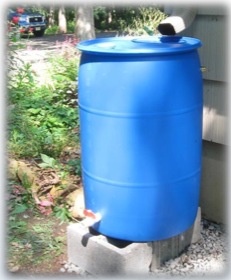 Are you interested in helping rainwater get into the ground? Rain barrels are a great way to do this! In this program, you’ll not only learn how to make rain barrels, you’ll also learn about their environmental benefits, why stormwater management is important and how to do rain barrel building workshops in your own community!
Are you interested in helping rainwater get into the ground? Rain barrels are a great way to do this! In this program, you’ll not only learn how to make rain barrels, you’ll also learn about their environmental benefits, why stormwater management is important and how to do rain barrel building workshops in your own community!
Rain Barrels are a great tool for promoting water conservation and reducing stormwater runoff. The Rain Barrel Train the Trainer program is for environmental commission members, educators, municipalities, garden clubs, and environmental organizations interested in learning how to teach their communities about the environmental benefits of rain barrels.
Wednesday, March 7, 2012, 6:30-9:00pm
Rutgers Cooperative Extension of Middlesex County
Davidson Mill Pond Park
42 Riva Avenue, South Brunswick, NJ
Covered at the workshop:
- How to get barrels
- Tools and materials needed to build a rain barrel
- Rain barrel installation examples
- Methods for painting rain barrels
- Preventing mosquitoes, and other maintenance issues
- Education on water conservation and stormwater management
- Brochures, fact sheets and other resources for educating the public and promoting your program
For those building a rain barrel, the cost is $50.00. For those not building a rain barrel, the cost is $12.00. Call 862-203-8814 to register or email info@greenwei.com. Payment must be made in advance by Wednesday, February 29th in order to reserve your space. Class size is limited so register early!

 I’m always telling people, “You can’t just buy green. You have to consume less.” But gee, there are some fun products out there, like the plantable postcards (they contain seeds) from the USPS. Find the postcards and check out some fun family activities at the USPS
I’m always telling people, “You can’t just buy green. You have to consume less.” But gee, there are some fun products out there, like the plantable postcards (they contain seeds) from the USPS. Find the postcards and check out some fun family activities at the USPS